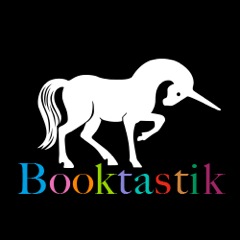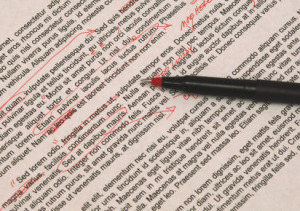 There’s a new book promotion site out there attempting to reach readers with great books from authors. Booktastik has been around since January of this year, with the goal of being both an author- and reader-friendly site. Unlike many of the other daily subscriber email sites, Booktastik features shorter works (so long as they’re more than 20,000 words). IU chatted with Booktastik’s Dionne Lister about what separates Booktastik from the pack and how the first five months of book sharing has been going. Continue reading “Booktastik Hopes to Spread the Word about Good Books”
There’s a new book promotion site out there attempting to reach readers with great books from authors. Booktastik has been around since January of this year, with the goal of being both an author- and reader-friendly site. Unlike many of the other daily subscriber email sites, Booktastik features shorter works (so long as they’re more than 20,000 words). IU chatted with Booktastik’s Dionne Lister about what separates Booktastik from the pack and how the first five months of book sharing has been going. Continue reading “Booktastik Hopes to Spread the Word about Good Books”
Month: May 2014
Open Letter to Beta-Readers
 Dear Beta-Reader:
Dear Beta-Reader:
Okay, I’ve written my magnum opus. I’ve elicited friends, family and beta-readers to read it, and I’m waiting on pins and needles for the feedback. I’m sitting with fingers and toes crossed, holding my breath, checking e-mail every five seconds, hoping against hope that the readers will like it. Then I get the first response: “I liked it. It’s good.”
Helpful? Yeah, no. Of course I would love to have my first readers ooh and ahh over the book, but this very non-specific comment is not constructive. Nice as it is, it tells me nothing.
The purpose of beta-readers is not to stroke my writer’s ego. That job belongs to my mother. The purpose of beta-readers is to find all the shortcomings in my writing before I push the publish button. They need to take that puppy out for a rigorous shake-down cruise and find every bug, every glitch, every typo, misplaced comma, and inconsistent tense. It’s painful to get feedback with a laundry list of problems, but would I rather see that list now, in a private e-mail before publication, or see it pasted up in a lambasting Amazon review for all the world to read? Continue reading “Open Letter to Beta-Readers”
Art for art’s sake; English for god’s sake

Should fiction writing be art, entertainment, both, or neither of those things?
Let’s take a quick look at a few other branches of the arts to compare the basic requirements. A painter cannot create art unless she knows how to mix the colours on her palette. A photographer cannot create art unless he understands the relationship between aperture and shutter speed. A potter cannot create art unless she understands the malleability of the clay and the speed the wheel needs to turn. All of these requirements are basics, before any issue of imagination, creativity, skill or talent can be considered.
Writers have just one basic, raw material: the English language.
After nearly four years of looking at self-published books, I’m still amazed at the titles out there where the authors have not learned how to use the raw material. I’ve seen one independently published book with a typographical error in the actual title. When I contacted the author to point this out, they replied in such a way which confirmed they did not know how to use the apostrophe. Continue reading “Art for art’s sake; English for god’s sake”
Proper Author (Human) Behavior
 When someone invites you to dinner in their home, that’s a nice gesture, right? Normally guests offer to bring something, and sometimes, even if the host says “We’re all set, but thank you,” some guests bring a gift to show their appreciation. But sometimes, and I guess it doesn’t matter the reason, people just don’t think they need to show any sort of appreciation. Sometimes, people don’t think rules apply to them. Sometimes, people just don’t think.
When someone invites you to dinner in their home, that’s a nice gesture, right? Normally guests offer to bring something, and sometimes, even if the host says “We’re all set, but thank you,” some guests bring a gift to show their appreciation. But sometimes, and I guess it doesn’t matter the reason, people just don’t think they need to show any sort of appreciation. Sometimes, people don’t think rules apply to them. Sometimes, people just don’t think.
So imagine, if you will… Continue reading “Proper Author (Human) Behavior”
